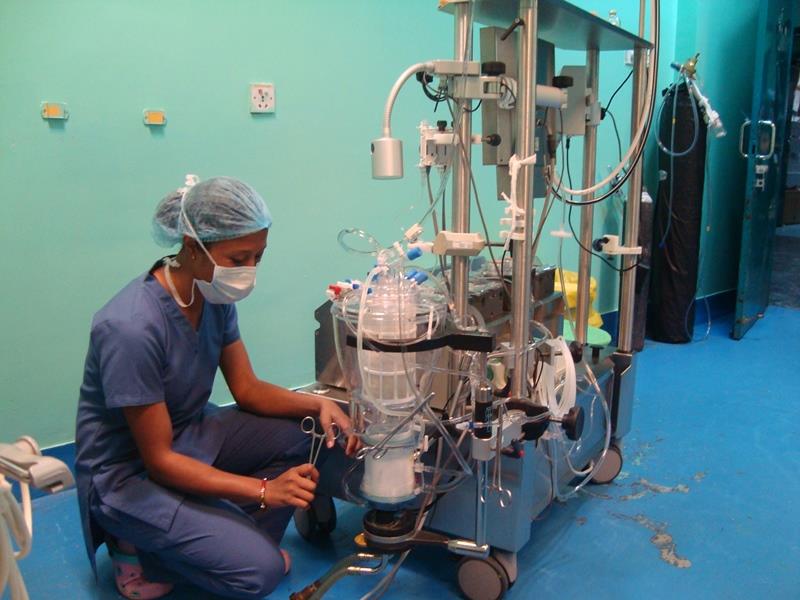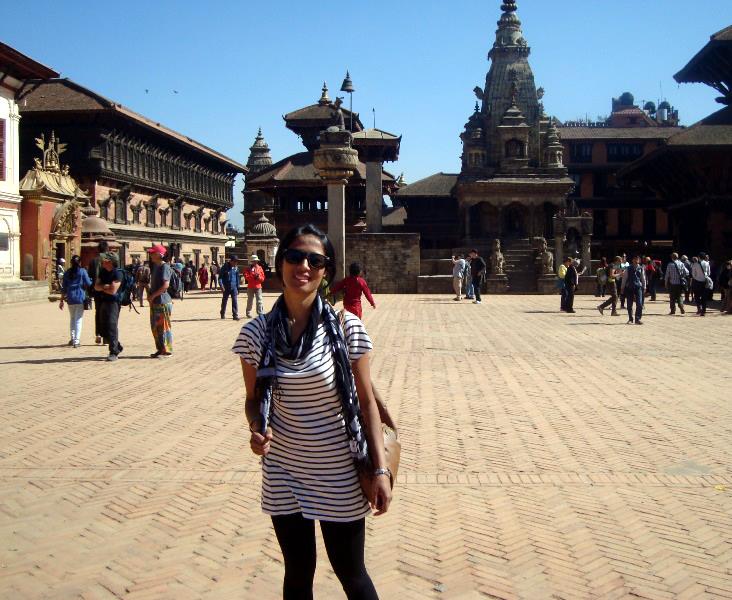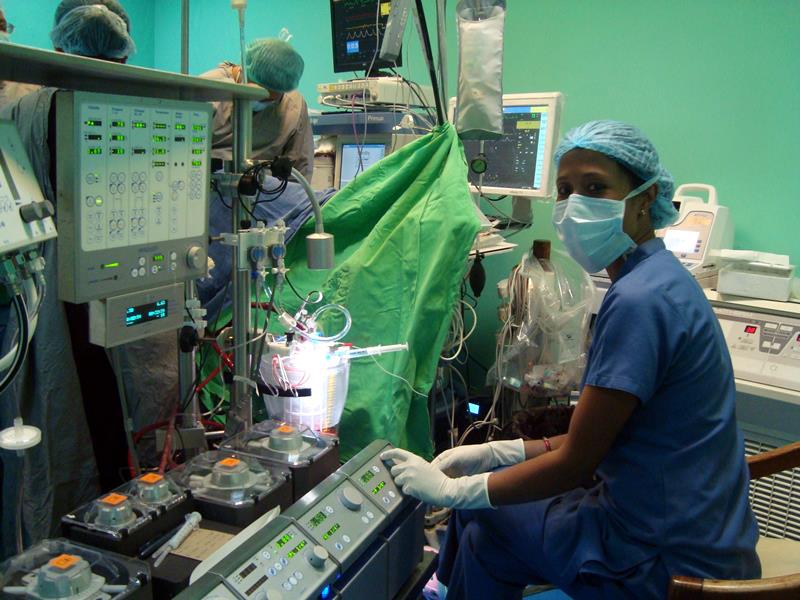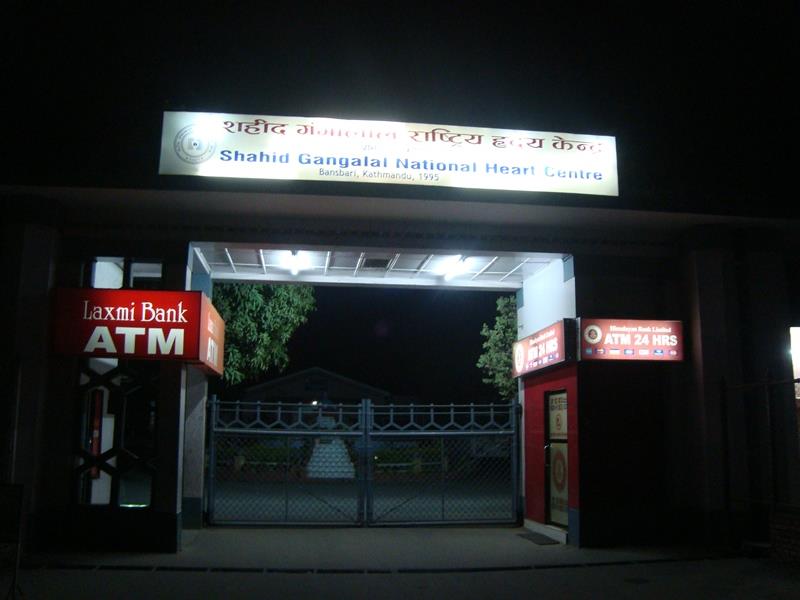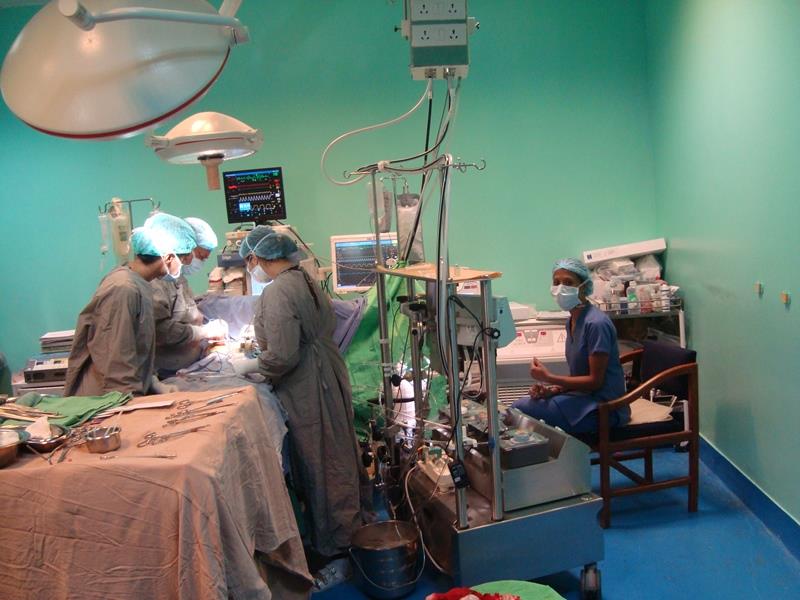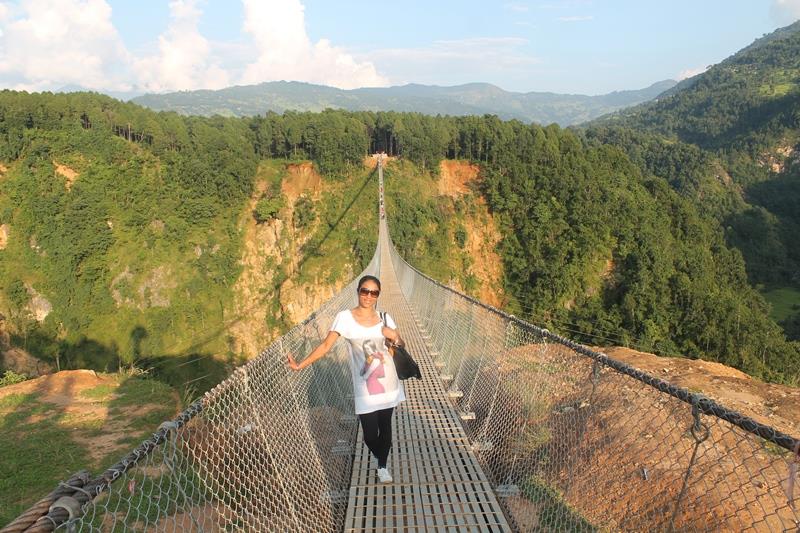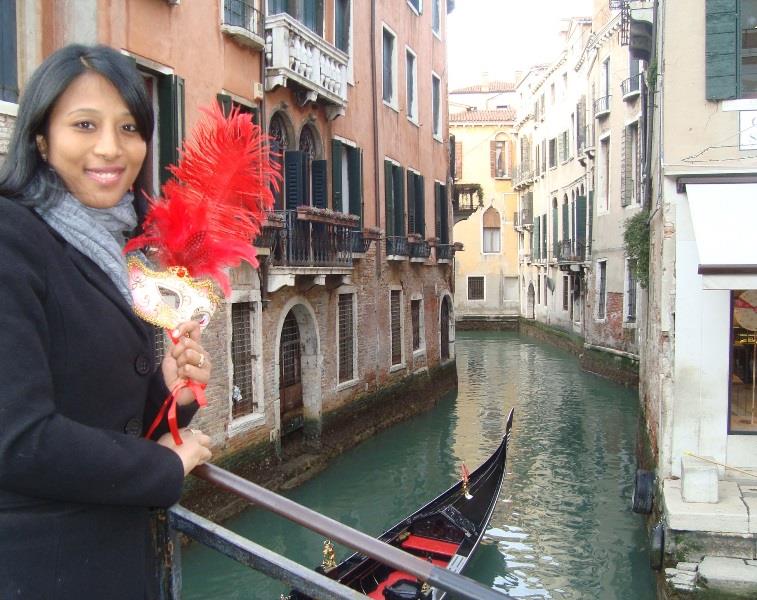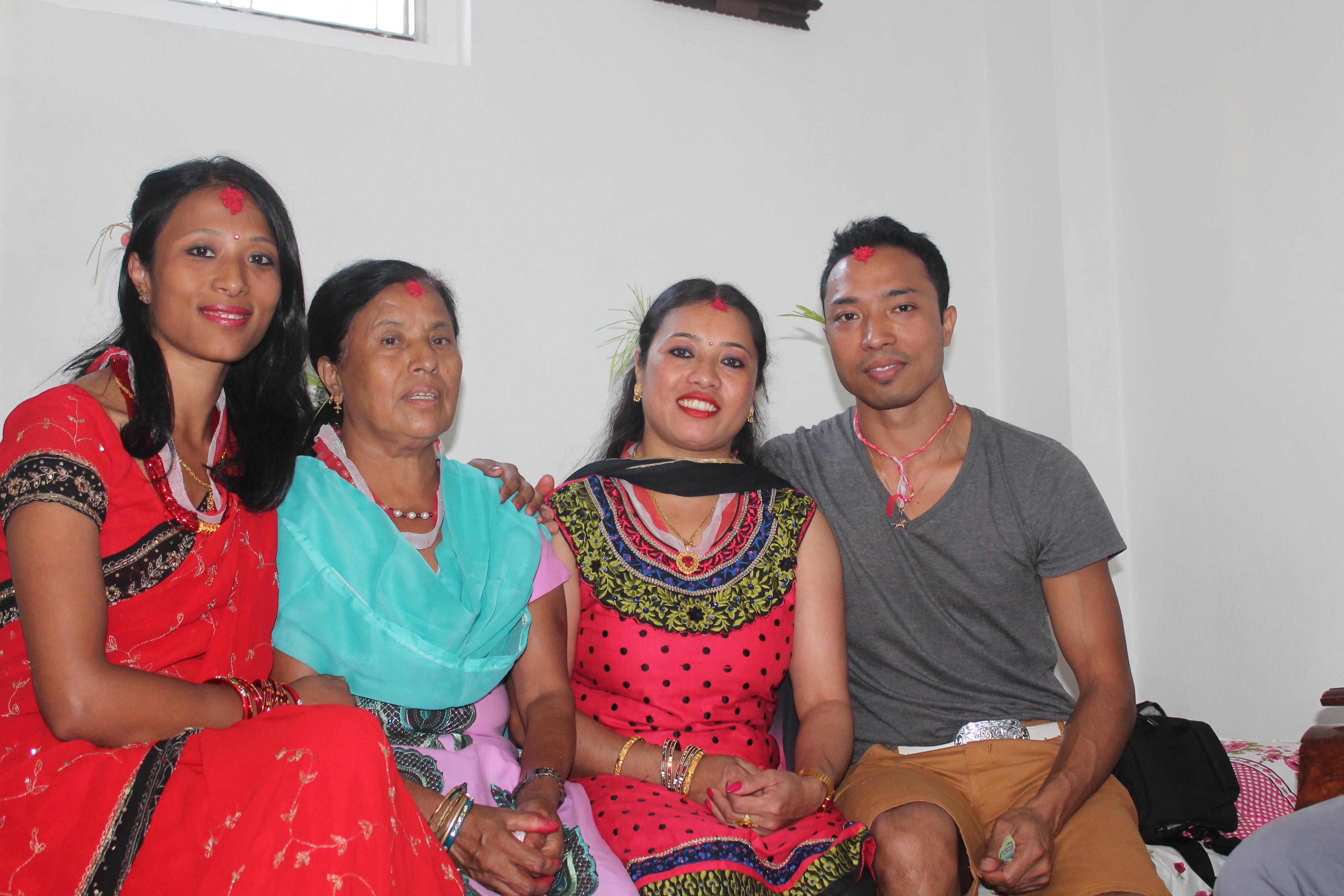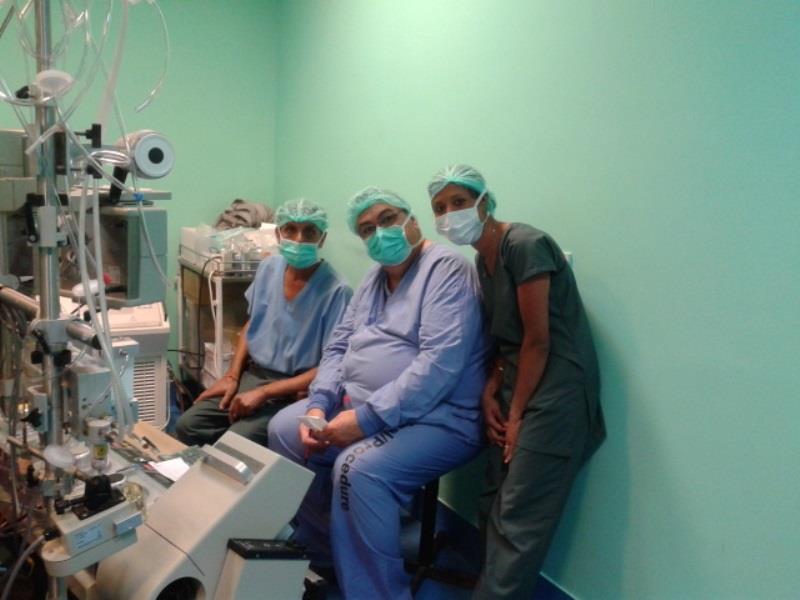Perfusion in Nepal: Interview With Laxmi Shrestha
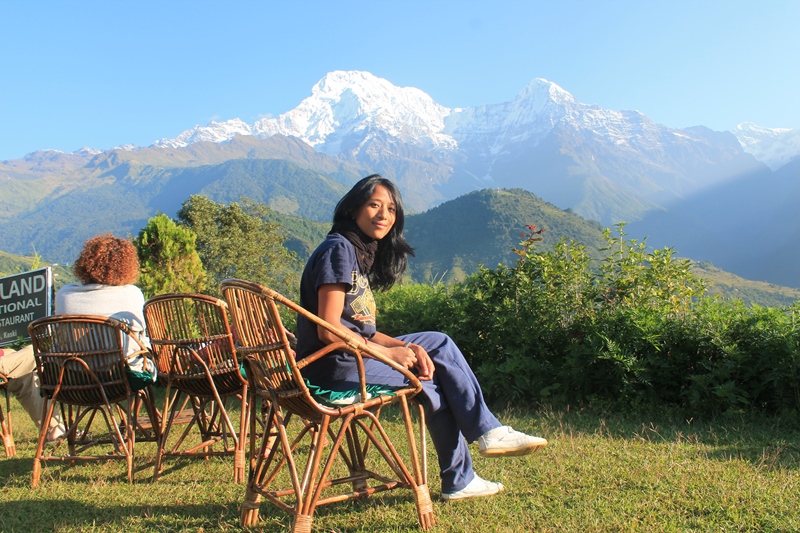
“Technologies today have made world nearer. The social networking sites(SNS) as you have mentioned have been a source to communicate at few time in every field and every area. Similary, We perfusionist have also got a good platform for sharing our views, information, techniques by these sites. And yes, it has definitely made us easy by getting instant help.”
Editor’s Note:
Laxmi and I have written back and forth for a little over a year now- since she was a student in Italy under the tutelage of my friend Dario Fichera.
Click here to view some of the posts of Dario’s life and perfusion experiences
I was very impressed with Laxmi’s composure and her communication skills. As well, very interested in her perspective coming from the exotic land of Nepal. It does have a Hemingway flavor to it- but more importantly- it is a small introduction to the rich lives of the Nepalese people and their nation.
Some Aspects of Laxmi’s Life …
Click images to enlarge
The Interview: To Laxmi Shrestha
Hi Laxmi,
This is Frank Aprile, from CircuitSurfers.com.
First of all- thank you so much for granting this interview, and helping to enrich our lives with your perspective on perfusion as viewed from your mountain world in Nepal.
I also want to thank Mr. Dario Fichera (referenced above) for his assistance in getting us together for this interview.
So on to the Interview:
Q 1 :
Describe your life when you first engaged medicine, what made you decide to go into perfusion, what were the circumstances for getting into a perfusion program?
My medicine carrier started after I joined nursing school.. I started working at a private hospital . it had been a great experience . I garnered differed kind of experiences from that hospital. since it was a small hospital and we had few staffs, I had to do all kind of nursing related work from staying at medical ward up to scrubbing in surgery. so also in these short period of time I had developed a lot of nursing skills . and yes I met my husband at that hospital .this is most important part of my life . It was my hubby who encouraged me to enroll in this faculty. he introduced me with this profession as he has been a cardiac surgeon. By then being a nurse it made me possible to get in to perfusion program.
Q 2:
Where do you / have you practiced perfusion? If outside of your own country- then why ? How did you end up training in Italy? How long was the program? Are there exams or certifications offered?
As we don’t have a perfusion school in Nepal, I had to do my perfusion course in Italy at University hospital of Padova .One of the Italian organization helped me to do my 2 years course in respective hospital. I should thank Professor Stellin , Chief of perfusionist Fabio and the director of the department of cardiovascular surgery of Padova university for accepting me as a student. Yes examinations had been held and also the certificates had been handover to me by the University.
=
Q 3:
Tell me about the places you have worked, your equipment that you use, how you conserve resources, how patients are selected (ability to pay- is it an issue)?
I am working at Shahid Gangalal National Heart Center ( SGNHC) , first cardiac hospital in Nepal, established in 1995 since then the hospital have been providing cardiac care . Every year we have almost 1500 cardiac surgeries . The common cases are rheumatic heart disease, CABG, Congenital heart diseases. We have three Heart lung Machines (Sarns 8000-2 and Maquet HL20) and Medtronic Bio Cal 370 ECMO . We use Dideco oxygenators 901, 902, 905 and EVO and Pixie for neonate. We re-sterilize the cannulae by ETO gases . we dispose oxygenator and circuit . some equipment used are improvised since we have very limited resource. There don’t have certain devices like VAVD, Cell Saver and proper ECMO circuit . So we make our own circuit for ECMO by general bypass oxygenator and its costume pack.
This has made us able to work in however condition. Nepal being a low income country, doing a heart surgery is very difficult to deal with. It has been like an issue. We have formally only 2 heart centers in Nepal .So the cues for operation is quite long, patients have to wait for almost couple of months. As you know heart surgery is expensive so people can’t go to private centers to cure their disease . the government of Nepal has made a system for heart patient, where certain group of patients below 14 years and above 75 years of age get free heart treatment(surgery).
Besides, there is another facilities for the people who can’t afford the treatment, gets free valve distribution, who is selected by the hospital after getting recommendation from the local authorities on each patient.
=
Q 4:
Discuss the physician perfusion relationship. Is it relaxed, formal, how do you interact when you need to give meds or make adjustments while on bypass?
We have a very cordial relation with physician and its quite formal . We use vaso –constricters, dilaters, antibiotics and frusemide on our own decision during bypass and in case if we need to give any other medicine then we consult with anaethesiolosists .
=
Q 5:
What is your impression of medicine in America (please be honest) as compared to medicine in Nepal or Italy?
Yes being honest, America has got advancement in everything including medicine, their technology is quite high than us. They got solution for every diseases. But the sad fact is everyone will not get treatment, patients if poor are not getting cure because of very high cost. But it is possible in our country Nepal and Italy, the patient however will get the cure since the government has made certain system for the heart patients to get the treatment anyhow. Also in Italy as the citizens are paying so many taxes they are being able to get their health cure in return.
Q 6:
Discuss your techniques regarding blood management, use of plavix, Novo7, platelets, FFP and Cryo.
We try to reduced tubing length and priming volume . we also do RAP and Autologous priming .Our hospital had used Plavix, but now a days we don’t use it anymore . Novo7 is not available in Nepal so we don’t use it. And platelets is being used in post-operative period like FFP to stop bleeding and.and improve the coagulation profile of the patient and also use in priming instead of Albumin.
=
Q 7:
Give me your opinion on how blogs, youtube, facebook, and twitter affect perfusionists- and any direction you see that is attainable for instant communication to help each other across the globe?
Technologies today have made world nearer. The social networking sites(SNS) as you have mentioned have been a source to communicate at few time in every field and every area. Similary, We perfusionist have also got a good platform for sharing our views, information, techniques by these sites. And yes, it has definitely made us easy by getting instant help.
=
Q 8:
You use FB a lot. Do you prefer that medium to perfusion forums? Do you use perfusion forums such as the FB group- Gruppo dei Perfusionisti ? What direction do you think perfusionists are you headed with that?
Of course I have been using perfusion forums in sites like fb which have been useful to me and many perfusion around the world to discuss the incident during ECC. It has helped us to improve our techniques and keep us updated about the perfusion stuffs.
=
Q 9:
What would be your goals for international perfusion communication?
As I said before the SNS is a good platform to communicate . these are the best way to keep in touch with international perfusion friends . My goal is to get every single knowledge regarding perfusion so that I would be more confident in my work. And I try if my ideas will help my friends too.
=
Q 9:
Is preventive medicine more prevalent in Asia than in the West?

I think we all need preventive medicine. We are trying to get it . in west they are much advance than Asia .
